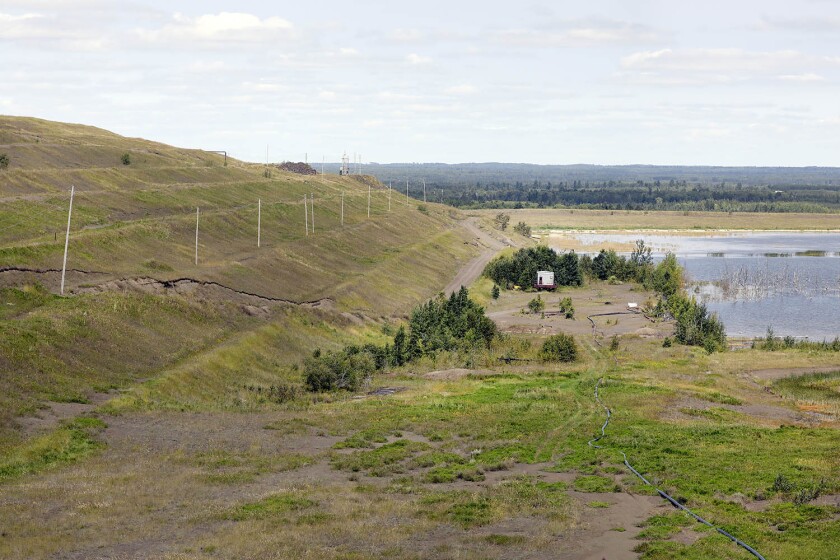ST. PAUL — A former Minnesota Pollution Control Agency official testified Thursday, Jan. 23., that she did not try to silence federal regulators when she asked them to delay the delivery of a letter outlining their concerns with the PolyMet mining project.
Former MPCA Assistant Commissioner Shannon Lotthammer said that she requested the delay for the sake of efficiency. At the time, the U.S. Environmental Protection Agency had planned to submit the letter during the public comment period for one of the project's essential permits.
ADVERTISEMENT
In a previously leaked exchange with a top official for the EPA's regional branch, Lotthammer expressed a desire for the agency to submit its comments after the public comment period concluded. On Thursday, she claimed to have done so in a bid to save both agencies time.
"I had concern about the EPA providing written comments on a version of the permit that we already knew we were going to be revising," she said.
Attorneys for a coalition made up of environmental groups and the Fond du Lac Band of Lake Superior Chippewa laid into Lotthammer during the third day of a Ramsey County District Court hearing. The coalition is suing the MPCA and PolyMet over the former's alleged mishandling of the EPA's comments.
PolyMet seeks to build what many believe would be Minnesota's first copper-nickel mine near Hoyt Lakes and Babbit. The project, which also calls for the construction of a processing plant and tailings dam, is opposed by several environmental groups party to the district court case.
Lotthammer, who is now an assistant commissioner at the state Department of Natural Resources, said Thursday that she asked the EPA to delay its comments so that MPCA could tweak the permit in response to publicly submitted comments and then provide the EPA with a more sophisticated version to critique. Such permits limit what holders can discharge into surface waters.
Lotthammer's old boss, former MPCA Commissioner John Linc Stine, previously said that the request for the delay was made in the name of efficiency. He testified Wednesday, Jan. 22, that for the EPA to have commented on the permit during the public notice period would have overburdened the state agency's staff.
At the time, he said Wednesday, the MPCA anticipated that it would have to respond to a large volume of other comments.
ADVERTISEMENT
In the leaked email to Kurt Thiede, then the chief of staff for the EPA's Chicago-based regional branch, Lotthammer said the MPCA would be willing to provide an updated version of draft for the EPA to comment on after the conclusion of the public notice period. Opponents of the mining project claim that the MPCA did so to keep the EPA's concerns from becoming public.
EPA officials ultimately agreed to that arrangement but later made their comments to the MPCA by phone instead of submitting them in writing, despite that a document outlining their concerns had already been prepared. Unlike emails or written letters, phone call conversations would not be included in the MPCA's public record on the project.
Lotthammer said that she couldn't recall another instance in which the MPCA had made such a request of its federal counterpart. She said she typically did not involve herself in the permitting process to the extent that she did in PolyMet's.
Lotthammer also testified that she deleted the email that contained her request to Thiede knowing it was one of the only written documents of the request being made, although she said she had no particular reason to delete it. At the time, she said Thursday, she did not believe it would need to be kept as a record.
Attorneys have argued that the MPCA erred in destroying emails, documents and a hard drive related to the permit, although the agency maintains that the materials it disposed of did not need to be added to its administrative record. By requesting a delay without scheduling additional public comment periods, they said, the agency violated its memorandum of agreement with the EPA, a notion Lotthammer disagreed with Thursday.
Additional MPCA officials are expected to testify in the case, which is anticipated to last for five to 10 days. In a separate case, the appellate court back to the Minnesota Department of Natural Resources for an administrative hearing.








